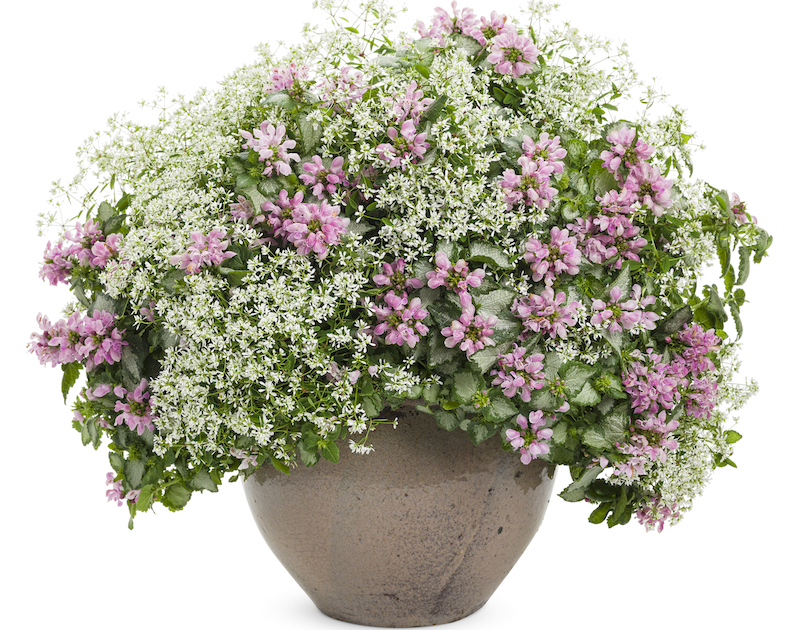Dead Nettle is a flowering groundcover that is easy to grow and not demanding. Small flowers bloom in the spring and early summer, and the variegated foliage provides an impressive visual display for the rest of the growing season. Dead Nettle grows as a perennial in zones 3 through 8. This plant is evergreen in regions with mild winters and dormant in areas with cold winters. Animals like deer and rabbits tend to leave Dead Nettle alone, making this an excellent plant for areas prone to damage from foraging animals.

As an evergreen, Dead Nettle is more susceptible to damage from animals during the winter when there is less food available. However, this plant is generally considered deer resistant. According to Rutgers University, this plant is Rarely Damaged on their rating scale from Rarely Damaged to Frequently Severely Damaged.
| Rarely Damaged |
| Seldom Severely Damaged |
| Occasionally Severely Damaged |
| Frequently Severely Damaged |
Keeping Deer Away From Dead Nettle
Keeping deer and other animals away from Dead Nettle isn't usually necessary since this plant is seldom eaten. If you do find animals are destroying your Dead Nettle, you can protect the plant with fencing. Relocate the plant to a busy area near a porch or patio, as that may discourage animals from getting close enough to eat the plant.
Will Dead Nettle Come Back After Deer Eat Them?
Should an animal damage your Dead Nettle, there is a good chance the plant will recover. Plants that sustain minimal damage will make a full recovery. Dead Nettle plants that receive extensive damage may not recover, especially if the damage happens late in the growing season when the plant is storing energy for the spring. Help a plant eaten by animals by removing damaged growth to encourage new, bushier growth.
Sources: Rutgers New Jersey Agricultural Experiment Station ‘Landscape Plants Rated by Deer Resistance’ 2018
 |
Author Alison Cotsonas - Published 05-16-2023 |
